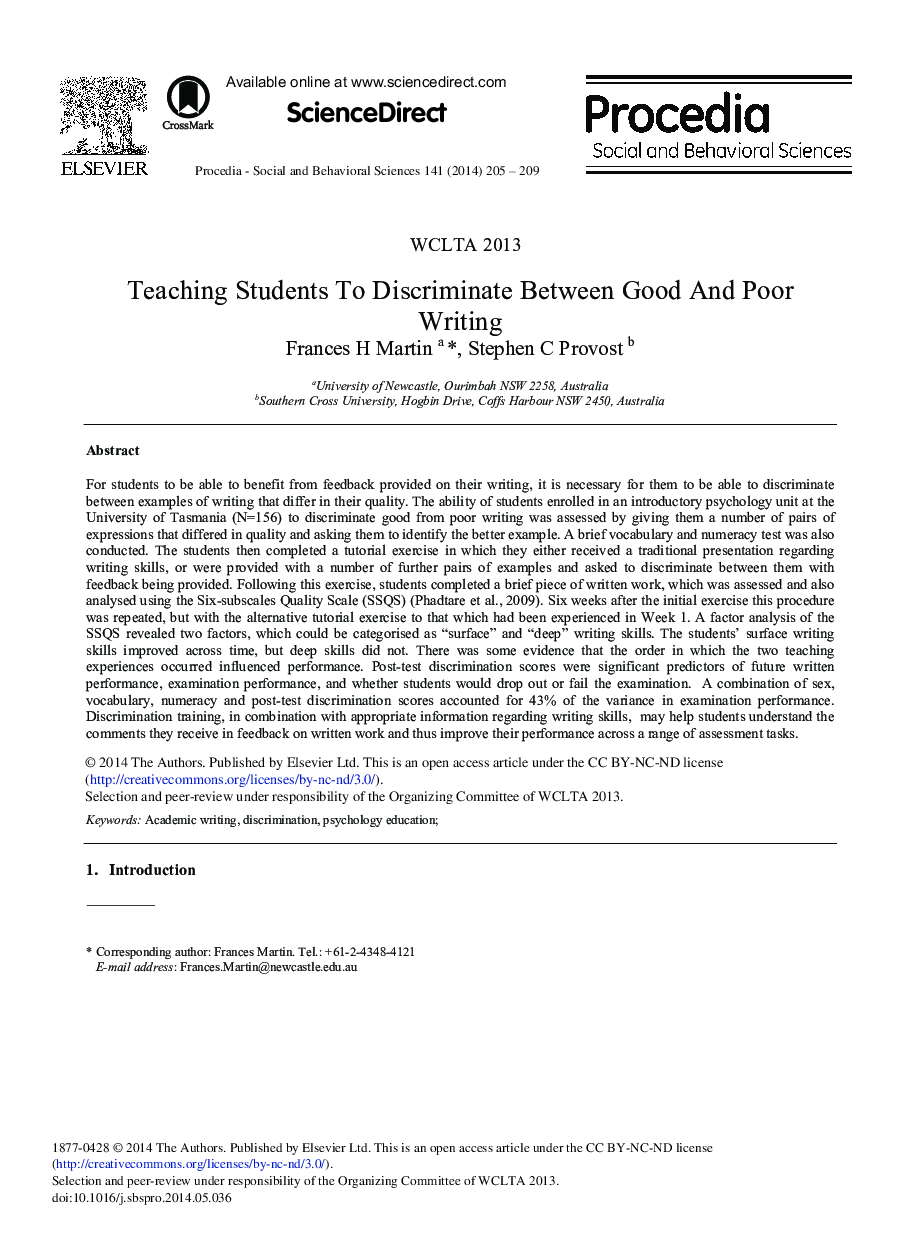| Article ID | Journal | Published Year | Pages | File Type |
|---|---|---|---|---|
| 1113231 | Procedia - Social and Behavioral Sciences | 2014 | 5 Pages |
For students to be able to benefit from feedback provided on their writing, it is necessary for them to be able to discriminate between examples of writing that differ in their quality. The ability of students enrolled in an introductory psychology unit at the University of Tasmania (N=156) to discriminate good from poor writing was assessed by giving them a number of pairs of expressions that differed in quality and asking them to identify the better example. A brief vocabulary and numeracy test was also conducted. The students then completed a tutorial exercise in which they either received a traditional presentation regarding writing skills, or were provided with a number of further pairs of examples and asked to discriminate between them with feedback being provided. Following this exercise, students completed a brief piece of written work, which was assessed and also analysed using the Six-subscales Quality Scale (SSQS) (Phadtare et al., 2009). Six weeks after the initial exercise this procedure was repeated, but with the alternative tutorial exercise to that which had been experienced in Week 1. A factor analysis of the SSQS revealed two factors, which could be categorised as “surface” and “deep” writing skills. The students’ surface writing skills improved across time, but deep skills did not. There was some evidence that the order in which the two teaching experiences occurred influenced performance. Post-test discrimination scores were significant predictors of future written performance, examination performance, and whether students would drop out or fail the examination. A combination of sex, vocabulary, numeracy and post-test discrimination scores accounted for 43% of the variance in examination performance. Discrimination training, in combination with appropriate information regarding writing skills, may help students understand the comments they receive in feedback on written work and thus improve their performance across a range of assessment tasks.
